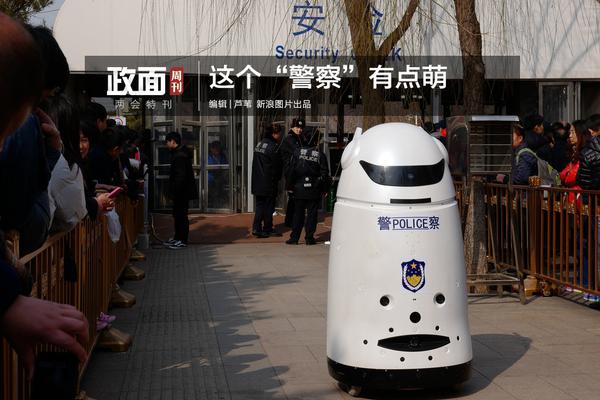
Short-term memory, long-term memory. Cognitive psychology regards memory as the process of coding, storing and extracting input information by the human brain. Memory is divided into three systems: instantaneous memory, short-term memory and long-term memory, which is based on the different ways of encoding, storing and extracting information, as well as the different length of information storage time.
What are the three memory systems: memory is also regarded as the process of the human brain encoding, storing and extracting input information, and according to the different ways of coding, storing and extracting information, as well as the different length of information storage time, memory is divided into instantaneous memory, short-term memory and long-term memory. A system.
What are the three memory systems? According to the different ways of encoding, storing and extracting information, and the different length of information storage time, memory is divided into three systems: instantaneous memory, short-term memory and long-term memory.
The three stages of memory are sensory memory, short-term memory and long-term memory. Sensory memory: Sensory memory refers to the information we receive through various sensory organs, such as vision, hearing, touch, taste and smell.
What are the three memory systems? According to the different ways of coding, storage and extraction of information, and the different length of information storage time, memory is divided into instantaneous memory, short-term memory and long-term memory. Remember the three systems.
The coding method of instantaneous memory, that is, the way instantaneous memory remembers information, is the image of external stimuli. Because the information of instantaneous memory is first registered in the sensory channel in the form of sensory images, instantaneous memory has a distinct image. The capacity of instantaneous memory is large, but the retention time is very short.
Perception is the cognitive process of giving meaning through information. ( 2) Working memory. It is the memory of processing and encoding information in the human brain within a minute. The holding time is about 5 seconds to 1 minute. Short-term memory also includes direct memory and working memory.

Weber's score), which is only applicable to medium-intensity stimuli, which is different from the Weber's score of sensory organs (2) Fechner's Law: 1860, using the differential threshold as the unit of sensation, a stimulus was measured. The difference threshold contained is believed to be the psychological intensity caused by this stimulus.
The concept of memory is the psychological process of accumulating, preserving and extracting individual experience in the mind.From storing into the brain to extracting and applying again, this complete process is collectively called memory.
Long-term memory refers to the memory maintained for more than a minute after external stimuli appear in a very short time. Features: The capacity of memory is unlimited, whether it is the type or quantity of information. Coding Semantic coding: Use words to process information and organize coding according to the meaning of the material.
Memory and memory process Definition: It is the reaction of past experience in the mind. Past experience refers to the perception of things, thinking about problems, the emotional experience caused by things, and the actions that have been carried out in the past. Function: It is the root of wisdom and the cornerstone of psychological development.
Binance download iOS-APP, download it now, new users will receive a novice gift pack.
Short-term memory, long-term memory. Cognitive psychology regards memory as the process of coding, storing and extracting input information by the human brain. Memory is divided into three systems: instantaneous memory, short-term memory and long-term memory, which is based on the different ways of encoding, storing and extracting information, as well as the different length of information storage time.
What are the three memory systems: memory is also regarded as the process of the human brain encoding, storing and extracting input information, and according to the different ways of coding, storing and extracting information, as well as the different length of information storage time, memory is divided into instantaneous memory, short-term memory and long-term memory. A system.
What are the three memory systems? According to the different ways of encoding, storing and extracting information, and the different length of information storage time, memory is divided into three systems: instantaneous memory, short-term memory and long-term memory.
The three stages of memory are sensory memory, short-term memory and long-term memory. Sensory memory: Sensory memory refers to the information we receive through various sensory organs, such as vision, hearing, touch, taste and smell.
What are the three memory systems? According to the different ways of coding, storage and extraction of information, and the different length of information storage time, memory is divided into instantaneous memory, short-term memory and long-term memory. Remember the three systems.
The coding method of instantaneous memory, that is, the way instantaneous memory remembers information, is the image of external stimuli. Because the information of instantaneous memory is first registered in the sensory channel in the form of sensory images, instantaneous memory has a distinct image. The capacity of instantaneous memory is large, but the retention time is very short.
Perception is the cognitive process of giving meaning through information. ( 2) Working memory. It is the memory of processing and encoding information in the human brain within a minute. The holding time is about 5 seconds to 1 minute. Short-term memory also includes direct memory and working memory.

Weber's score), which is only applicable to medium-intensity stimuli, which is different from the Weber's score of sensory organs (2) Fechner's Law: 1860, using the differential threshold as the unit of sensation, a stimulus was measured. The difference threshold contained is believed to be the psychological intensity caused by this stimulus.
The concept of memory is the psychological process of accumulating, preserving and extracting individual experience in the mind.From storing into the brain to extracting and applying again, this complete process is collectively called memory.
Long-term memory refers to the memory maintained for more than a minute after external stimuli appear in a very short time. Features: The capacity of memory is unlimited, whether it is the type or quantity of information. Coding Semantic coding: Use words to process information and organize coding according to the meaning of the material.
Memory and memory process Definition: It is the reaction of past experience in the mind. Past experience refers to the perception of things, thinking about problems, the emotional experience caused by things, and the actions that have been carried out in the past. Function: It is the root of wisdom and the cornerstone of psychological development.
OKX Wallet app download for Android
author: 2025-02-02 22:38 Binance app download Play Store
Binance app download Play Store
414.58MB
Check OKX Wallet app
OKX Wallet app
546.78MB
Check OKX download
OKX download
236.25MB
Check Binance download Android
Binance download Android
495.94MB
Check OKX Wallet to exchange
OKX Wallet to exchange
142.12MB
Check Binance download
Binance download
957.74MB
Check OKX Wallet Sign up
OKX Wallet Sign up
888.79MB
Check OKX Wallet to exchange
OKX Wallet to exchange
299.72MB
Check Binance wikipedia
Binance wikipedia
191.47MB
Check Binance APK
Binance APK
273.24MB
Check OKX Wallet apk download
OKX Wallet apk download
577.45MB
Check Binance login App
Binance login App
718.83MB
Check Binance wallet
Binance wallet
262.66MB
Check OKX app
OKX app
324.29MB
Check Binance app
Binance app
233.17MB
Check OKX Wallet
OKX Wallet
313.55MB
Check Binance app download Play Store
Binance app download Play Store
172.72MB
Check Binance download APK
Binance download APK
393.27MB
Check OKX Wallet download
OKX Wallet download
631.62MB
Check Binance Download for PC Windows 10
Binance Download for PC Windows 10
265.11MB
Check Binance download
Binance download
954.86MB
Check Binance download
Binance download
856.15MB
Check Binance Download for PC
Binance Download for PC
585.45MB
Check Binance wikipedia
Binance wikipedia
184.27MB
Check OKX download
OKX download
184.44MB
Check Okx app download
Okx app download
924.18MB
Check Binance app
Binance app
243.73MB
Check OKX Wallet app
OKX Wallet app
593.18MB
Check Binance login
Binance login
323.75MB
Check OKX Wallet apk download
OKX Wallet apk download
621.58MB
Check Binance US
Binance US
829.62MB
Check Binance login
Binance login
435.74MB
Check Binance download Android
Binance download Android
535.77MB
Check Binance market
Binance market
482.85MB
Check Binance wikipedia
Binance wikipedia
132.62MB
Check Binance login
Binance login
494.56MB
Check
Scan to install
Binance download iOS to discover more
Netizen comments More
660 待贾而沽网
2025-02-02 22:30 recommend
1126 先得我心网
2025-02-02 22:10 recommend
935 钱可通神网
2025-02-02 22:09 recommend
2976 如愿以偿网
2025-02-02 21:58 recommend
308 连类比物网
2025-02-02 21:47 recommend